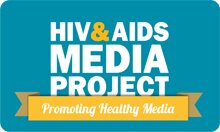Health Care Rights
4.1 Informed Consent

A person must give informed consent before being medically treated. This includes being tested for HIV or other infections. In the testing for HIV context, informed consent implies "that the individual understands what the test is, why it is necessary and the benefits, risks, alternatives and possible social implications of the outcome." (SA National Department of Health. National Policy on Testing for HIV)
ExceptionsHealth care workers do not have to seek consent in the following circumstances:
- If the patient needs emergency medical treatment
- If blood has been donated
- If the patient is mentally ill (consent must be obtained from a next of kin)
- If the (anonymous) blood sample is being used for health research (e.g. the antenatal studies)
If someone has tested or treated a person without their consent they can:
- complain to the Health Professions Council of South Africa (HPSCSA)
- sue the health care worker for invasion of privacy
- lay a criminal charge of assault against the health care worker
4.2 Right to Health Care and Medical Treatment
The SA Constitution gives every person the right to access health care services, sufficient food and water and emergency medical treatment. [Section 27] Section 25 of the Universal Declaration of Human Rights states: "Everyone has the right to a standard of living adequate for the health and well-being of himself and of his family, including ... medical care and necessary social services."
The ![]() Health Professions Council of South Africa (HPCSA) guidelines, which are legally enforceable, say no health worker can:
Health Professions Council of South Africa (HPCSA) guidelines, which are legally enforceable, say no health worker can:
- refuse to treat someone because they have HIV
- treat HIV-positive people differently to other patients (e.g. for fear of getting infected with HIV)
Every person has a right to treatment as set out in the SA National Department of Health's national guidelines. An HIV-positive person who is refused treatment by a public hospital or clinic can report this to the SA National Department of Health or the Public Protector, or take their case to the High Court.






